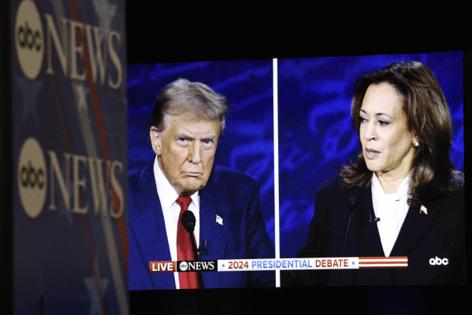Commentary: 'Dark money' is not the boogeyman it's made out to be
Published in Op Eds
Among the big losers of the 2024 election were politicians and activist groups who claim so-called “dark money” is the secret force driving American politics. Groups that do not disclose their donors once again made up a small share of overall campaign spending and notched few notable victories.
The results underscore an uncomfortable but increasingly clear reality: calls to force disclosure of “dark money” are not about securing a negligible increase in transparency in elections. They are about subjecting donors to harassment and retaliation for their beliefs.
The organization Open Secrets estimates that roughly $16 billion will have been spent on federal campaigns in the 2024 election cycle when all is said and done.
Yet “dark money” nonprofit organizations account for only about $62 million in independent expenditures, according to spending reports they are legally required to file with the Federal Election Commission (FEC). Nondisclosing groups also reportedly contributed $1 billion to other independent entities like super PACs. Super PACs, however, must publicly report contributions from nonprofits in their FEC filings.
However you slice it, “dark money” paled in comparison to the many billions of dollars raised and spent by candidates and groups that disclose their donors. “Dark money” also did not have any secret power to sway voters. In the presidential race, Vice President Kamala Harris enjoyed significantly more support from “dark money” groups than did former President Donald Trump. Harris also raised more money from donors overall and received more support from super PACs.
None of it mattered. Spending a lot of money can ensure lots of voters hear your message, but it can’t make them agree with you or vote for you. Just ask Hillary Clinton and Jeb Bush.
In recent years, politicians on the left and the right have denounced “dark money” as a cancer that must be rooted out of our politics. Some have proposed legislation that would force groups that speak about policy or elections to expose the names and home addresses of their significant donors. Harris herself was a co-sponsor of such legislation in the U.S. Senate.
These laws would not blunt the barrage of attack ads and fundraising appeals that hit voters’ mailboxes and televisions every election cycle, the vast majority of which come from groups that disclose their donors. But disclosure could silence trusted nonprofit organizations who value their supporters’ privacy beyond their ability to speak about elections. These are exactly the kinds of voices we should be encouraging, not excluding, in campaigns.
Hyperbolic rhetoric around “dark money” can mislead voters into thinking that these groups are a new phenomenon. Yet “dark money” is simply a smear for groups that dare to speak about politics without serving up a list of their supporters’ personal information for opponents to exploit. News flash: these groups have always existed in American society.
Many of the Founding Fathers were themselves members of secret societies or wrote under pen names to protect their privacy. Abolitionists and later civil rights activists also relied on private donors and networks as they fought to vindicate the rights of African Americans. In fact, the landmark Supreme Court ruling that protects the ability of nonprofits to keep their donor lists private came out of the civil rights movement.
“It is hardly a novel perception that compelled disclosure of affiliation with groups engaged in advocacy may constitute as effective a restraint on freedom of association as (other) forms of governmental action…” wrote a unanimous Court in 1958’s NAACP v. Alabama.
Name any social or political movement in American history, left or right, and you will find nonprofit groups at the forefront. Some are even household names like the NAACP, ACLU, NRA, or League of Women Voters. These groups have not always campaigned for specific candidates in elections, but they have always had a voice in our civic debates and an influential role in our politics.
It is time to stop maligning nonprofits as “dark money.” Privacy and free speech go hand-in-hand in a world where extreme activists and corrupt governments seek to dox their critics for retaliation. Every American deserves the right to participate in our democracy without the risk of losing their job or facing harassment at their home.
____
Heather Lauer is the CEO of People United for Privacy Foundation, a nonprofit that defends the First Amendment rights of all Americans, regardless of their beliefs, to come together in support of their shared values.
_____
©2025 Tribune Content Agency, LLC.




























































Comments